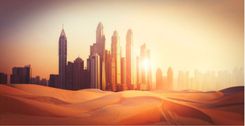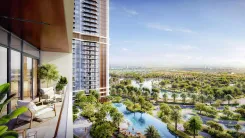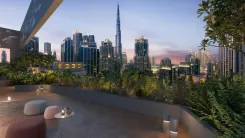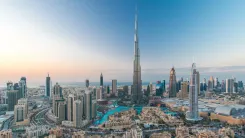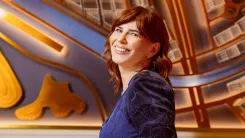Dubai, the glittering metropolis that has risen from the sands of the Arabian desert, embodies the ambitious vision of the United Arab Emirates (UAE). This transformation from a humble trading outpost to a global hub for business, tourism, and innovation is a testament to the UAE's well-defined economic development strategies. With a clear goal of becoming the world's best city by 2040, Dubai and the UAE are actively implementing plans that leverage their strengths and address potential challenges. This article delves deeper into the key driving factors behind this audacious objective, analyzing how these strategies propel Dubai and the UAE towards becoming a global leader.
From Resource Dependence to Diversification: A Strategic Shift
Prior to the discovery of oil in the mid-20th century, the UAE's economy largely revolved around pearl diving and trade. However, the UAE's leadership recognized the limitations of a resource-based economy. This foresight led to a strategic shift towards diversification, a process that began in the 1970s. This involved investing oil revenue in sovereign wealth funds and fostering non-oil sectors like tourism, trade, and logistics. This diversification strategy has yielded impressive results. As of 2023, non-oil sectors contribute over 70% of the UAE's GDP, signifying a remarkable shift towards a more sustainable and diversified economic landscape [Ministry of Finance – United Arab Emirates].
Building a Future-proof Economy: The Fifty Economic Plan and D33 Agenda
The UAE's aspirations for economic growth are further fueled by the "Fifty Economic Plan," launched in 2019. This comprehensive strategy outlines five key pillars that aim to propel the country's economic development well into the future:
- Integrated Economy: This pillar focuses on fostering seamless economic activity and trade across the various emirates in the UAE. It promotes collaboration and removes potential barriers, creating a unified and powerful economic engine.
- Entrepreneurship and SMEs: Recognizing the crucial role of small and medium enterprises (SMEs) in job creation and innovation, the plan encourages their growth by providing support systems and facilitating access to funding.
- Tourism: The strategy aims to solidify the UAE's position as a global tourism destination by attracting visitors with world-class infrastructure, diverse cultural experiences, and a focus on sustainable tourism practices.
- Foreign Direct Investment and Exports: The plan aims to attract foreign investment by creating a business-friendly environment with streamlined regulations, lower costs, and a focus on attracting high-tech industries. Additionally, it emphasizes increasing exports by fostering innovation and developing a globally competitive export sector.
- Attracting and Retaining Talent: The UAE recognizes that human capital is a key driver of economic success. The Fifty Economic Plan prioritizes attracting and retaining skilled professionals by offering competitive salaries, fostering a multicultural environment, and investing in education and training programs to equip the workforce with the necessary skills for the knowledge-based economy.
Dubai, as the vibrant heart of the UAE, has also implemented its own ambitious strategy called the "D33 Agenda." This roadmap aims to transform Dubai into a top-three global city for tourism and business within a decade. The D33 Agenda comprises initiatives that focus on reducing business costs, streamlining processes, and promoting innovation. Additionally, it prioritizes the development of high-value sectors like FinTech, e-commerce, and aerospace, positioning Dubai as a hub for future-oriented industries [World Finance].
Innovation and Technology: Fuelling Growth in the Knowledge Economy
The UAE recognizes that innovation and technological advancements are critical drivers of economic progress in the 21st century. The country is heavily investing in research and development (R&D) across various sectors, focusing on artificial intelligence (AI), renewable energy, biotechnology, and space exploration. This focus on cutting-edge technologies positions the UAE at the forefront of innovation, attracting leading tech companies and entrepreneurs. One prime example is Dubai Science Park, a dedicated hub that provides facilities and support systems for tech companies and startups, fostering a vibrant ecosystem for innovation.
Infrastructure Development: Building a Connected World
The UAE's phenomenal infrastructure development plays another crucial role in propelling economic growth. Dubai boasts world-class airports, a sophisticated logistics network, and advanced telecommunications infrastructure. This remarkable connectivity empowers businesses by facilitating efficient trade and supply chains. It also attracts tourists seeking seamless travel experiences and easy access to various destinations within the UAE. Mega-projects like Expo 2020 Dubai further solidify the UAE's position as a global hub for trade, innovation, and cultural exchange.
Investing in the Future: Human Capital Development
The UAE understands that its most valuable asset is its people. The government prioritizes education by investing in world-class universities, vocational training programs, and upskilling initiatives. This focus on education equips citizens with the necessary skills to thrive in the knowledge economy and contribute meaningfully to the nation's development. Additionally, the UAE's open and multicultural environment attracts skilled professionals from around the world, further enriching the country's human capital pool. This creates a dynamic workforce that can adapt to the ever-evolving needs of the global economy.
Sustainability: Balancing Growth with Environmental Responsibility
While economic development remains a top priority, the UAE is committed to achieving it through sustainable practices. The Fifty Economic Plan includes ambitious goals for clean energy adoption, aiming for a significant portion of the energy mix to come from renewable sources such as solar and wind power by 2050. Dubai's commitment to sustainability is evident in initiatives like the Mohammed bin Rashid Al Maktoum Solar Park, one of the world's largest concentrated solar power plants. This focus on environmental responsibility ensures long-term economic growth in harmony with the environment and ensures the UAE's competitiveness in a world increasingly focused on sustainability.
Challenges and Considerations on the Road to 2040
Despite the UAE's impressive economic achievements, challenges remain on the path to becoming the best city by 2040. One key challenge is ensuring a smooth transition away from dependence on oil. Fluctuations in oil prices can still impact the economy, and fostering sustainable alternatives for revenue generation remains crucial. Additionally, attracting and retaining skilled talent requires offering competitive salaries, providing opportunities for professional development, and fostering an attractive work-life balance.
Furthermore, maintaining a dynamic and competitive business environment is critical for Dubai's continued success. Streamlining regulations, reducing bureaucracy, and fostering a culture of innovation will be essential for attracting businesses and entrepreneurs. Addressing social issues like income inequality and affordable housing will also be crucial in creating a truly inclusive and sustainable economy.
Conclusion: A Vision for the Future
Dubai and the UAE's ambitious plan to become the world's best city by 2040 is a testament to their vision, foresight, and commitment to continuous improvement. The UAE's focus on economic diversification, innovation, human capital development, and sustainability provides a strong foundation for achieving this ambitious goal.
By addressing the existing challenges and remaining adaptable in the face of a constantly evolving global landscape, Dubai and the UAE have the potential to become a truly world-class city, offering a unique blend of economic opportunity, cultural diversity, and cutting-edge technology.
This transformation will not only benefit the UAE but also serve as a model for other nations seeking to build strong and sustainable economies in the 21st century.
